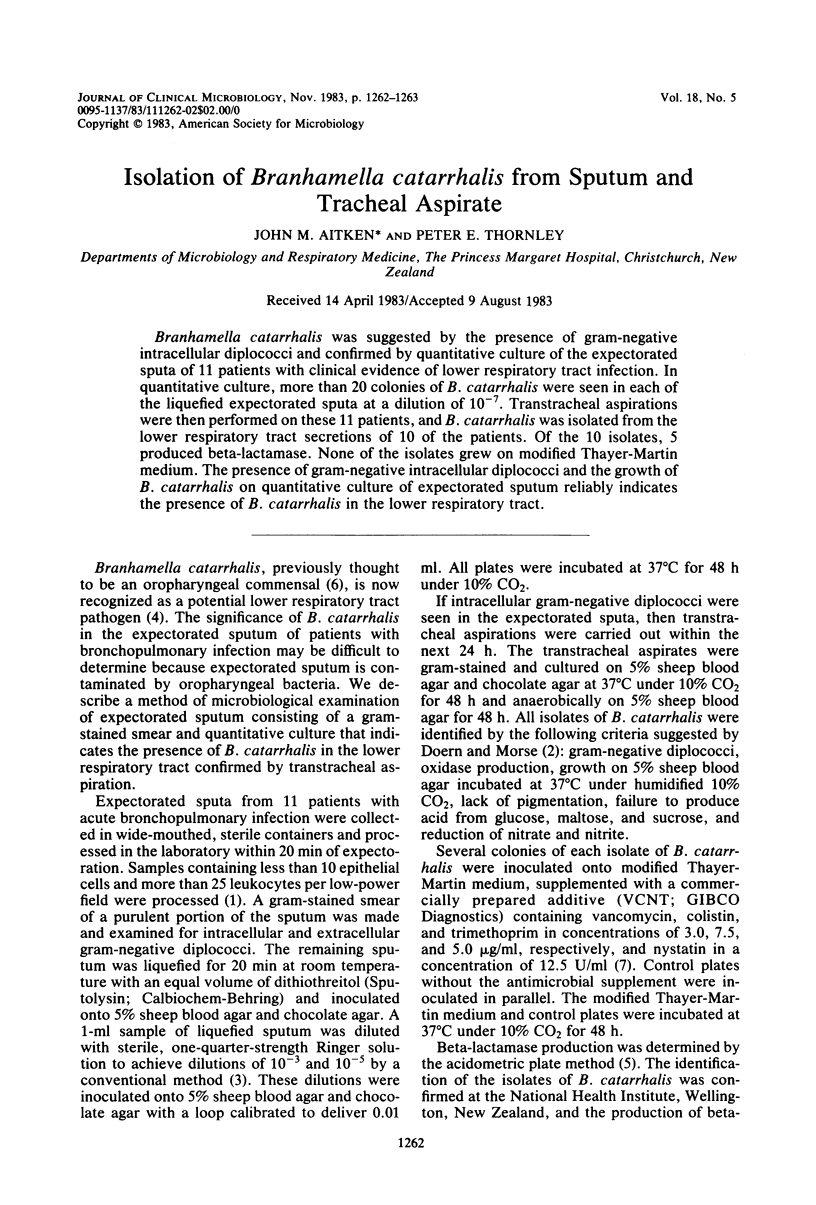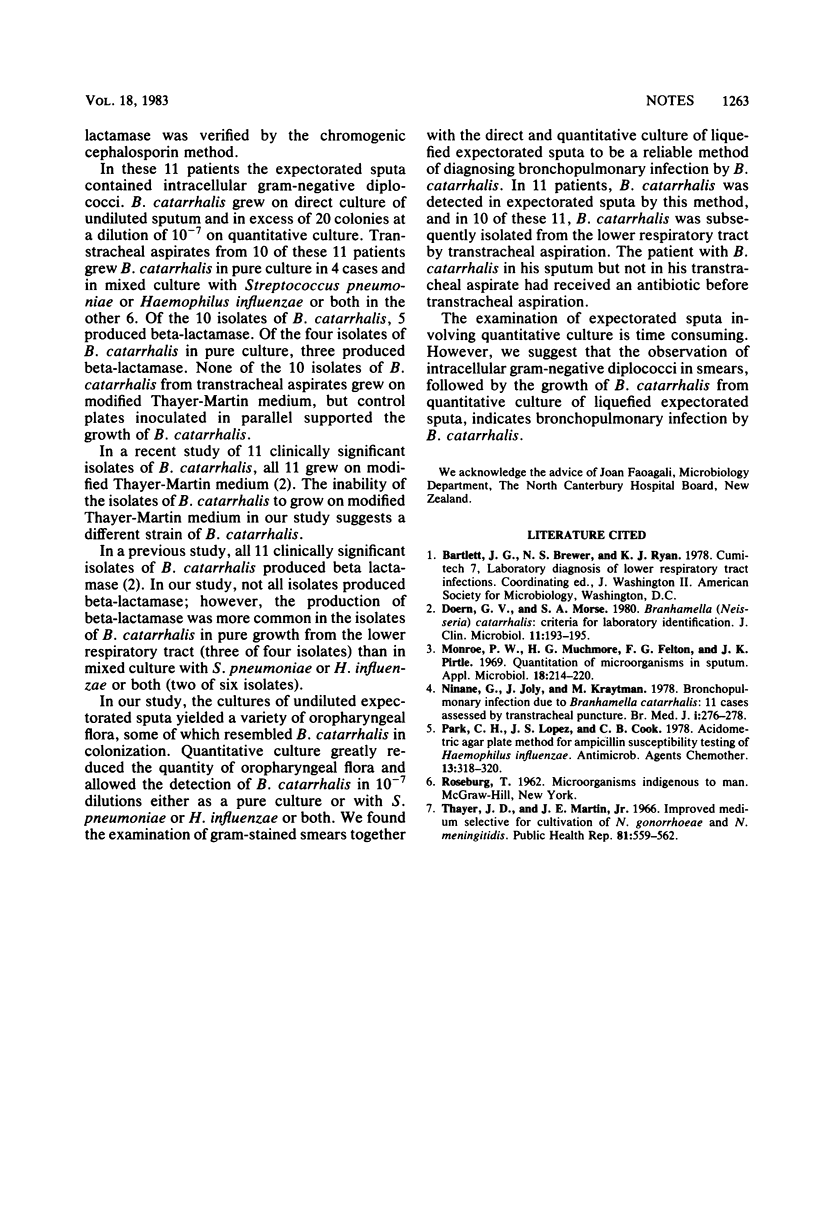Abstract
Branhamella catarrhalis was suggested by the presence of gram-negative intracellular diplococci and confirmed by quantitative culture of the expectorated sputa of 11 patients with clinical evidence of lower respiratory tract infection. In quantitative culture, more than 20 colonies of B. catarrhalis were seen in each of the liquefied expectorated sputa at a dilution of 10(-7). Transtracheal aspirations were then performed on these 11 patients, and B. catarrhalis was isolated from the lower respiratory tract secretions of 10 of the patients. Of the 10 isolates, 5 produced beta-lactamase. None of the isolates grew on modified Thayer-Martin medium. The presence of gram-negative intracellular diplococci and the growth of B. catarrhalis on quantitative culture of expectorated sputum reliably indicates the presence of B. catarrhalis in the lower respiratory tract.
Full text
PDF

Selected References
These references are in PubMed. This may not be the complete list of references from this article.
- Doern G. V., Morse S. A. Branhamella (Neisseria) catarrhalis: criteria for laboratory identification. J Clin Microbiol. 1980 Feb;11(2):193–195. doi: 10.1128/jcm.11.2.193-195.1980. [DOI] [PMC free article] [PubMed] [Google Scholar]
- Monroe P. W., Muchmore H. G., Felton F. G., Pirtle J. K. Quantitation of microorganisms in sputum. Appl Microbiol. 1969 Aug;18(2):214–220. doi: 10.1128/am.18.2.214-220.1969. [DOI] [PMC free article] [PubMed] [Google Scholar]
- Ninane G., Joly J., Kraytman M. Bronchopulmonary infection due to Branhamella catarrhalis: 11 cases assessed by transtracheal puncture. Br Med J. 1978 Feb 4;1(6108):276–278. doi: 10.1136/bmj.1.6108.276. [DOI] [PMC free article] [PubMed] [Google Scholar]
- Park C. H., Lopez J. S., Cook C. B. Acidometric agar plate method for ampicillin susceptibility testing of Haemophilus influenzae. Antimicrob Agents Chemother. 1978 Feb;13(2):318–320. doi: 10.1128/aac.13.2.318. [DOI] [PMC free article] [PubMed] [Google Scholar]
- Thayer J. D., Martin J. E., Jr Improved medium selective for cultivation of N. gonorrhoeae and N. meningitidis. Public Health Rep. 1966 Jun;81(6):559–562. [PMC free article] [PubMed] [Google Scholar]



